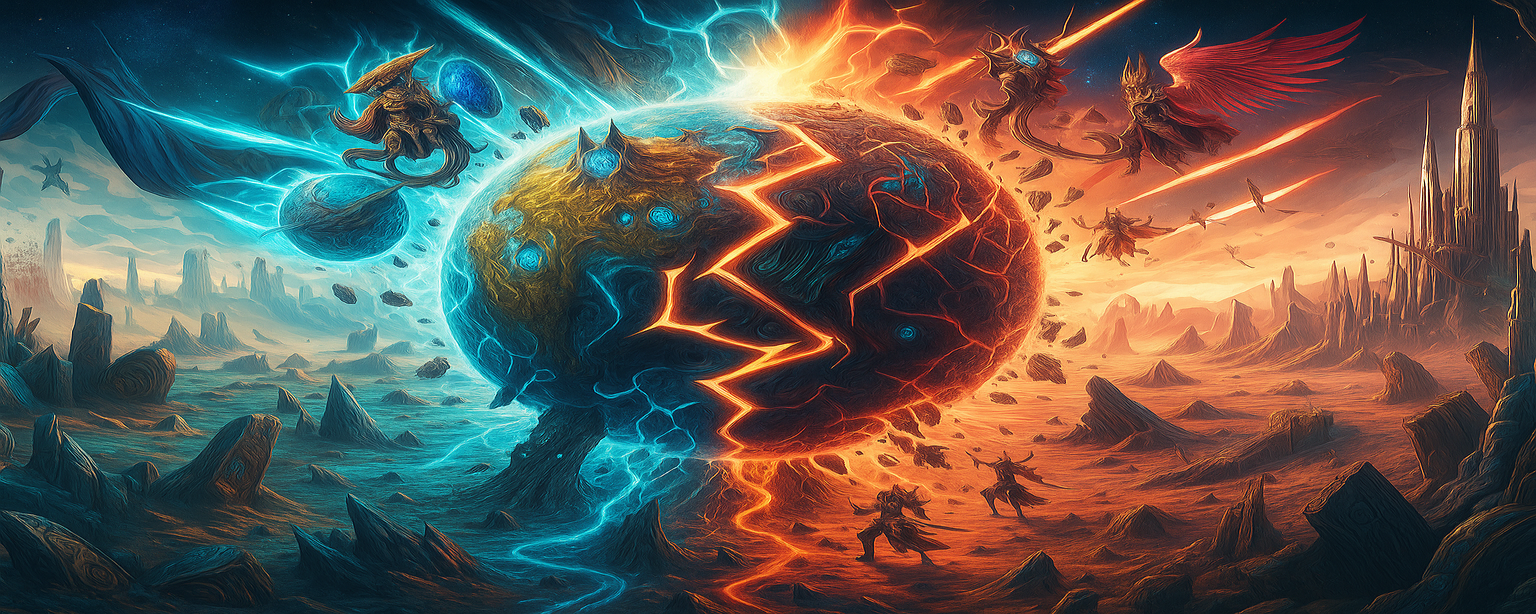The Silent One
Ilmos does not speak much. When he does, I almost wish he hadn’t.
His words are curt, his tone flat, his demeanor indifferent. If one did not know better, they might mistake him for an idiot. He is not. He is simply unconcerned with how others perceive him.
Perhaps that is why he seldom responds to prayers. Unlike other gods, he does not crave reverence. He does not seek temples, nor does he demand offerings. He does not even acknowledge his own worshipers. And yet, they persist. The rangers, the druids, the hunters—they follow him not because he commands them, but because he simply exists.
The Green Dwarf
Ilmos was born a dwarf, or so it is said. He does not look like one.
His skin is green, his frame far broader than his kin, his presence more akin to the orcish folk than the mountain dwellers who first laid claim to him. When I asked him why, he shrugged.
“Nature makes what fits.”
How very poetic.
Some claim the orcs are the way they are because of him. That he keeps them wild, untamed, resistant to the progress Bhita would impose upon them. I do not know if that is true. I asked him once, and he merely snorted.
“They do as they please.”
And yet, they never stray far from the wilds. They never fully embrace the machines, the cities, the ‘progress’ the mortals hold so dearly.
I think he likes it that way.
Balance, Brutal, Unyielding
Ilmos does not favor the predator over the prey, nor does he mourn the fallen tree or celebrate the newborn cub. He does not interfere. He does not intervene. He only ensures that the scales remain even.
“Civilization is the illusion of control,” he told me once. “The world does not need control. It needs balance.”
I countered that civilization is balance. That laws, knowledge, and structure keep chaos at bay.
He laughed at me.
Ilmos does not see civilization as a triumph. He sees it as a temporary arrangement, one that nature will reclaim the moment mortals falter. And he is not wrong.
But neither is he right.
An Unmoving God
Ilmos does not seek change. He does not seek anything.
Bhita races forward, reshaping the world in her wake. Ilmos stands still, unmoved, uncaring, watching as the world shifts around him, knowing that in time, it will return to its natural state.
I wonder if he has ever wanted something beyond what he is. If he has ever desired to leave the forests, to step into the grand halls of mortal cities, to see what they build when left to their own devices.
If he has, he has never said so.
I doubt he ever will.
The Answer I Did Not Expect
I asked Ilmos once if he hated Bhita.
He thought about it for a long while before shaking his head.
“Hate?” He mused. “No. She does what she must. I do what I must.”
That was all.
No anger. No resentment. No grand philosophy. Simply an acceptance of what is.
Some part of me envies that.


Comments